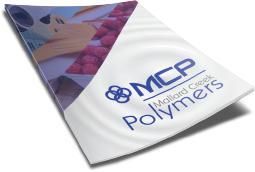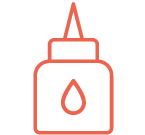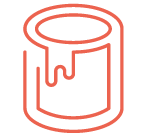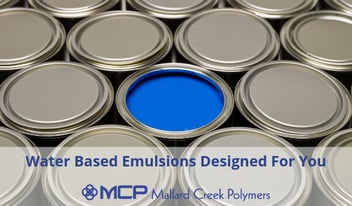
There are many places to source an acrylic polymer emulsion. Some will offer you low prices, but only the specialty polymer producers can provide smaller volumes, product customization, and direct access to technical specialists. Warehouse chains..
 There are many places to source an acrylic polymer emulsion. Some will offer you low prices, but only the specialty polymer producers can provide smaller volumes, product customization, and direct access to technical specialists.
There are many places to source an acrylic polymer emulsion. Some will offer you low prices, but only the specialty polymer producers can provide smaller volumes, product customization, and direct access to technical specialists.
Warehouse chains like Costco and Sam’s Club are popular with consumers who love the low prices, but shopping that way doesn't suit everyone. Some people don't want to buy huge quantities, some want more choices and value the personal touch that comes from dealing with retailers they know.
It's no different in the specialty polymers industry. If you're in the market for an acrylic polymer emulsion there are lots of places you can look. There are the big players that everyone knows, and then there are the private manufacturers, small boutique operations that thrive by providing a higher level of service. These are companies that will work with you to develop innovative and superior new products. They're geared up for less than mega-volume production, and they're available for advice and support.
Service costs money of course, and with constant pressure to drive down the cost of materials, it helps to educate decision-makers about the value specialty manufacturers provide.
Choose the right polymer
It may sound obvious to choose the right raw material but when it comes to polymers, there are many, many choices. Choosing the right emulsion polymer for your project starts with understanding the options you have available. Take time to learn about the solutions available within the five main types of synthetic polymer emulsions. Talk to other chemists who can share new ideas and introduce you to chemistries you may not have tried.
Smaller volumes
In making acrylic polymer emulsion, as with many other products, scaling-up production results in lower unit costs. It also means it becomes prohibitively expensive to make smaller quantities. Some producers won't do it at all while others impose steep additional charges. Unless your polymer partner can manufacture in small to medium volumes, the only alternative is to buy and hold a large “minimum order quantity,” hitting cash-flow and incurring storage costs.
Customization
Imagine picking up napkins in Sam's Club and asking if they'd print your name on each one. It's not going to happen. Yet if you wanted to give your dinner guests something unique that's the kind of customization you might want.
It's the same with specialty polymers. One that’s tailored precisely to the needs of your product can make the world of difference, but large scale producers don’t want to help. The boutique manufacturer on the other hand, with flexible, low volume processes, can provide a level of customization you won't get elsewhere. The best of them even have their own pilot reactors, R&D labs, and a staff of highly trained industrial chemists.
The personal touch
Speaking of chemists, at the private, specialty operation these are people you get to know. They'll pick up the phone to answer your questions, they'll become familiar with your products and processes, and in time they'll seem like an extension of your business.
Dealing with people you know makes it easier to get advice, and when you consult people who know you they can provide more specific advice. That improves both product performance and quality.
Bottom line
Sometimes the higher price is the better deal, even if the benefits aren't easily quantified. There's nothing wrong with buying on price, providing you understand what you're sacrificing: most likely that will be volume flexibility, customization, and direct access to technical specialists.

 Construction
Construction
 Nonwovens
Nonwovens
 Adhesives
Adhesives
 Textiles
Textiles
 Printing & Packaging
Printing & Packaging
 Paper
Paper
 Paints & Coatings
Paints & Coatings





